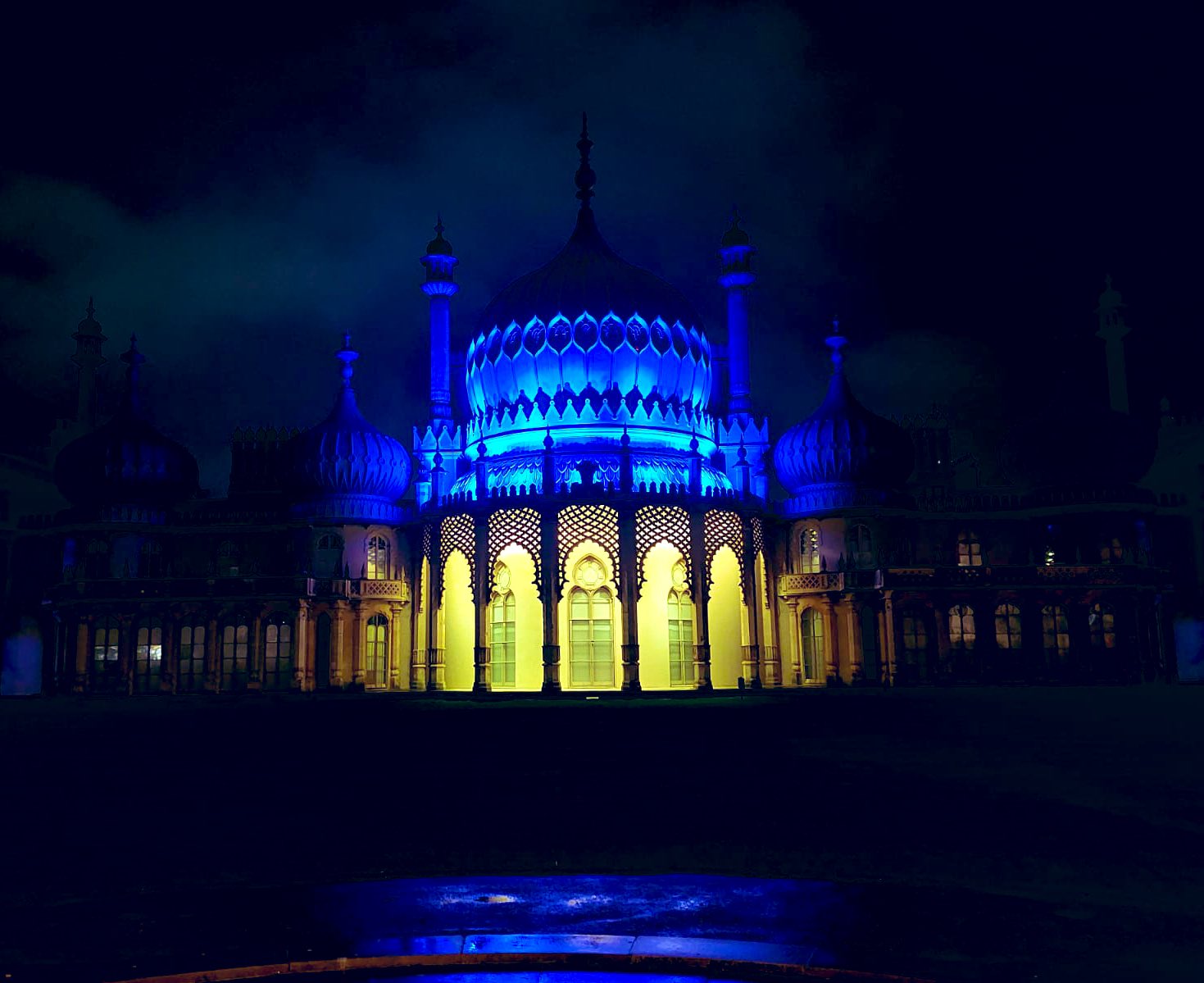More than 200 families in Brighton and Hove have opened their homes to 385 Ukrainians since the Russian invasion in February.
The number includes 139 children, according to a new report to members of Brighton and Hove City Council.
The report said that the council had spent almost half of the £2.8 million that it had received from the government to support nearly 400 Ukrainians.
The government money has included a one-off £200 payment to each guest and an optional £350 “thank you” paid to hosts for up to 12 months.
Separately, the council said that it had received £10,500 a guest to provide support services to help Ukrainian families rebuild their lives and integrate into their new communities.
The report, to the council’s Tourism, Equalities, Communities and Culture Committee, follows a cross-party motion to the full council meeting in April, asking for regular updates on income and spending on the Homes for Ukraine scheme.
The report said: “The community response to the arrival of Ukrainians started promptly as soon as the first arrivals were in the city.
“The Network of International Women and the nascent Stand for Ukraine group set up weekly drop-in sessions at All Saints Church in Hove for guests and hosts, allowing access to a wide range of services who also attend these sessions.
“This built on the valuable relationships already formed to provide a social space for asylum-seeker residents.
“Apart from the sessions at All Saints, many and varied initiatives are under way to support the Ukrainians arriving in the city end of June.”
A further £1.18 million from the £2.84 million from the Home Office has gone towards council staffing and services and £167,000 for “third sector” organisations.
The most significant tranche of council spending was £360,000 towards home to school transport.
Additionally, staffing for a Ukrainian support helpline at the community hub came to £275,000.
Homelessness prevention, including staffing and money to help Ukrainians move into the private rented sector, came to £220,000.
Other funding went towards finding Ukrainian-speaking staff to work with children starting school, a Ukrainian programme co-ordinator and an administrator.
Third sector funding went to the Trust for Developing Communities to provide bilingual employment support, Together Co and Sussex Interpreting Services for social prescribing and language support, the Network of International Women for its drop-in sessions at All Saints, job matching through the Chamber of Commerce, increasing capacity at the Hummingbird Project’s global social 18 club and swimming lessons at Brighton Swimming School.
The council still has a further £1.41 million to spend and councillors are being asked to give senior officials the power to a house that how it is spent on supporting Ukrainians.
The report said the council’s priority was to “further develop the city’s co-ordinated, flexible and holistic package of support for refugees in partnership with the third sector and business community”.
On funding, it said: “The city will use the government funding and the heightened interest and awareness of how to help and safely accommodate Ukrainians to benefit all those seeking sanctuary in the city wherever possible within the constraints of the funding instructions issued by government.”
Ukrainian refugees who came to Brighton and Hove after the government launched its Homes for Ukraine sponsorship scheme have the right to remain, work, study and access public funds for three years.
The report also set out support for other refugees. It said that 21 Syrian households of approximately 80 people arrived in the city through the vulnerable person’s resettlement scheme (VPRS) with a funding package of £20,520 each over five years.
Funding covers support from Voices in Exile, childcare and English language lessons, as well as help with housing, schools and the NHS.

Brighton and Hove has also resettled 12 households through the Afghan Relocation and Assistance Policy (ARAP) which relocates Afghans who worked with British forces in Afghanistan, and the Afghan Citizens Resettlement Scheme (ACRS), which protects others at risk in Taliban-ruled Afghanistan.
The first three cases receiving support in the city were the families of masters students at Sussex on the Chevening Scholarship programme.
The ACRS specifically supported those who stand up for democracy, women’s rights, freedom of speech and the rule of law.
Housing from the private sector and Voices in Exile supported the new arrivals.
Since January last year, a new immigration route has opened for British, Nationals to Hong Kong and their dependants, allowing them to live, study and work in the UK on a path to citizenship.
The council is engaging with a community group formed from the Hong Kong arrivals, and estimates 2,000 people have arrived in the city from the area.
The council’s Tourism, Equalities, Communities and Culture Committee is due to note the council’s work on refugees and asylum-seekers when it meets at Brighton Town Hall at 4pm on Thursday 15 September. The meeting is scheduled for webcast on the council’s website.
The council’s Tourism, Equalities, Communities and Culture Committee is due to meets at Brighton Town, Hall, at 4pm on Thursday 15 September. The meeting is scheduled for webcast on the council’s website.









